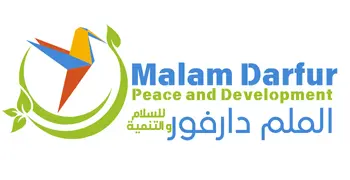About Us

Our Mission
Malam Darfur Peace and Development (MDPD) is an organization that aims at establishing peace, reconciliation and erasing the aftermath of the conflict. MDPD has started working in Al-Malam locality, and then proceeded to work in rest of northern South Darfur state, as well as the other Darfur states.
The organization pursues the grassroots approach, and melds peace with development to achieve stability. MDPD also invests in human capital as the reliable resource for achieving development in the region and all parts of Darfur.
MDPD’s work focuses women’s rights through advocating for women protection, especially in the conflict-affected areas in Darfur, by empowering them and having them lead in both the peace-building and development efforts. MDPD works closely with with survivors and victims of armed conflict in both rural areas and IDP returnees.
To achieve the goals of peace and development, MDPD has developed a comprehensive plan based on innovation to provide its core institutions in the areas with water, health, education, agriculture, livestock, renewable energy and technology.
In achieving these goals, MDPD hopes to see these project as a model for addressing marginalized areas in Sudan and investing in rural development.
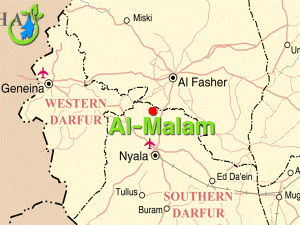
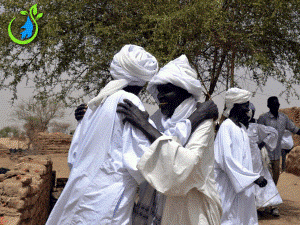
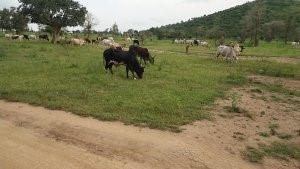
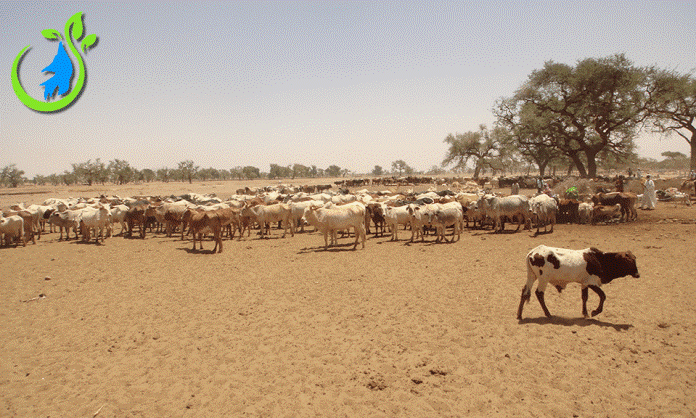
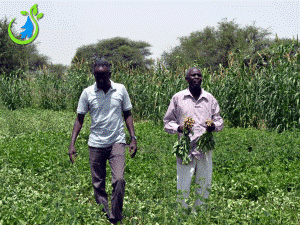
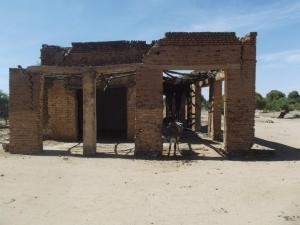




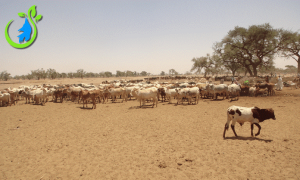

Historical Background
Al-Malam is the village where Sultan Ali Dinar was born and raised, and he ruled Darfur as an independent state from 1899 to 1916. The Sultan Ali Dinar assigned El-Fashir to be the state’s official capital of his sultanate, and assigned Al -Malam to be the rural capital, where the Sultan spent significant time annually. Since its inception, Al-Malam has emerged as the official center of northern South Darfur localities.
The village of Al- Malam has two names: Al-Malam or Al-Malam-Keila. The Greater Al-Malam is a bit of an urban center, by Sudanese standards, which was reflected in the number of schools and small clinics that provide primary health care, government offices and a huge marketplace that provides goods and services to the area. Keila is the original village that witnessed the emergence of the royal family that ruled Darfur from 1899 to 1916. The legendary Omda, Adam Makki Jibril, is considered the founding father of modern day Al-Malam-Keila, which has established the village in Al- Malam Valley to the east of the old town. The village of Turba, located to the North of Al-Malam is a small village that is considered part of the Greater Malam area, as well as Um Dasho to the Eastern part of the area. Al-Malam is a part of South Darfur state, located in the heart of Darfur at a strategic crossroads between Al-Fashir, the capital of North Darfur state, and Nyala, the capital of South Darfur state, as well as and Marra Mountains (Jebel Marra). The population consists the following tribes: Fur, Bany Mansur, Dajo, Birgid and other minorities. All the groups residing in Al-Malam and the surrounding countryside practice farming, herding and trading.
Before the war broke out in Darfur in 2003, the area of Al-Malam was a picture of peaceful co-existence and social tolerance in a village that lies between three smaller villages that became the epicenter of economic and agricultural activity, which nourished the livelihood of generations. The village was a trade magnet for small investors who flogged to it to reap the benefits of its spoils from places as far away as Al-Fashir, the capital of North Darfur and Nyala, the capital of South Darfur. The weekly market that was held every Saturday was a magnet for the produce of Jebel Marra, and the grains from the surrounding regions especially the products of Mershing to the south, and Shangil-Tobaya to the northeast. Furthermore, the herders who roam the Darfur plains found a market for beef and dairy products and an endless potential for growth.
The nomadic tribes that trek for hundreds of miles in search of water and grazing land found rest area with all the services in Al-Malam. In the rainy season, the cattle and camel camps were erected around the area, and the human interaction created a unique exchange, rich with cultural diversity and economic activities. The nomadic Arabs rub shoulders with the indigenous African tribes, and the whole community benefits.
After the outbreak of war in Darfur, Al-Malam area became a target of the government and its militias, and the result was total destruction of the area and the death of hundreds of its citizens. Most of the inhabitants of the area were displaced and sought refuge in the displaced camps around Nyala and El-fashir, and some moved to the Jebel Marra area and Mershing. The social fabric was tattered and the peaceful co-existence has become a thing of the past.
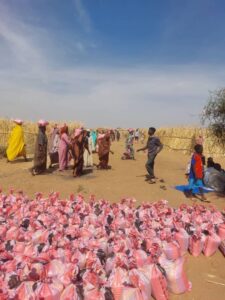
Saving Lives with Food Assistance … MDPD Humanitarian Aid Delivery in the town of Tawila
Malam Darfur Peace and Development MDPD has been delivering food assistance in the town of Tawila, alongside other areas within Darfur region. On Saturday, December

Saving Lives with Food Assistance … MDPD Humanitarian Aid Delivery in Al Fasher
We are pleased to announce a significant step forward in humanitarian efforts in the city of Al Fasher, where the Malam Darfur Peace and Development
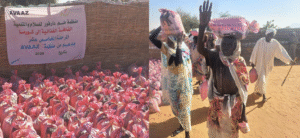
Saving Lives with Food Assistance
On Thursday, November 27, 2025, in response to the urgent need for food in the displaced communities of Darfur, Malam Darfur Peace and Development MDPD,
